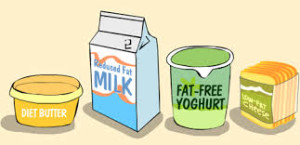- Infertility
- Weight gain
- Depression
- Fatigue
- Insomnia
- Low libido
- Hair loss and hair thinning
Organs and glands like your thyroid, adrenals, pituitary, ovaries, testicles and pancreas regulate most of your hormone production and if your hormones become even slightly imbalanced it can cause major health issues.
Also, new research is showing that your gut health plays a significant role in hormone regulation so if you have leaky gut or a lack of probiotics lining your intestinal wall it can also cause hormone imbalance.
The good news is there are ways to balance your hormones naturally.
The bad news is the majority of people across the world today turn to synthetic treatments such as hormone replacement therapy which can do three things:
- It makes people dependent on prescription drugs for the rest of their lives.
- Simply mask the symptoms while you develop disease in other areas of the body.
- Causes serious side effects by increasing your risk of stroke, osteoporosis and cancer.
If you don’t want these negative side effects, but do want to naturally balance your hormones, here’s how:
1. Eat Good Fats
Good fats are fundamental building blocks for hormone production, they speed up your metabolism and promote weight loss.
Some foods packed with healthy fats include: nuts and seeds, coconut oil, avocados, grass-fed butter, olives, egg yolks and wild caught salmon.
2. Increase Intake of Omega-3 Fatty acids
Since the early 20th century, the use of vegetable oil in our diets has skyrocketed. But, because people didn’t boost their Omega-3 intake to balance out the elevated Omega-6s they were consuming, there is an onslaught of chronic diseases and inflammatory processes.
Research suggests that jumping from the 1:1 Omega-3/6 ratio our hunter-gather ancestors enjoyed to the astronomical 20:1 ratio most people take in today is the primary dietary factor of most diseases!
Steer clear of oils high in Omega-6s (all refined oils such as safflower, sunflower, corn, cottonseed, canola, soybean and peanut) and load up on rich sources of natural Omega-3s (wild fish, flaxseed, chia seeds, walnuts and grass-fed animal products). Better still, take a good supplement.
3. Heal Leaky Gut
Leaky gut is a condition that not only affects your digestive tract but also causes hormone issues and can more specifically target your thyroid. When undigested food particles like gluten leak through your gut into your blood stream it will cause inflammation of the entire body and more specific organs like the thyroid.
Probiotics actually help your body in producing certain vitamins that effect hormone levels like insulin. In addition, supplements like digestive enzymes and probiotics can aid in repairing your gut lining, which in turn can balance your hormones.
Some of the main things that damage your digestive health include processed foods, gluten, hydrogenated oils and emotional stress.
4. Eliminate Toxic Cleaning and Personal Products
Another way to eliminate toxins in your body is to stay away from conventional cleaning and body care products that are high in DEA, parabens, propylene glycol and sodium lauryl sulfate.
The use of plastic bottles should be replaced with glass and stainless steel because of BPA’s, and switching from teflon pans to stainless steel, ceramic or cast iron can make a big difference in your hormonal health.
5. Interval Exercise
One of the best all-around activities you can do for your health is High Intensity Interval Training – HIIT. This training will help reduce stress levels, enhance your immune system, regulate metabolic function and keep you at the body weight your body was designed for.
6. Get More Sleep
Lack of sleep and sleeping at the wrong time, actually may be the worst habit people have that disturb hormone balance. To maximize hormone function, get to bed by 10:00 p.m. One hour of sleep between 10:00 p.m. and 2:00 a.m. is equal to 2 hours of sleep before or after.
7. Supplement with Vitamin D3
According to an article from the American Journal of Clinical Nutrition, Vitamin D3’s role in promoting human life is more profound than previously suspected.
Most people should supplement with around 2,000IU to 5,000IU daily of vitamin D3 daily.
8. Follow a Hormone Balancing Diet
This is a simple tweak to our eating pattern which helps balance out our hormone levels. Eat real food, avoid processed food, avoid refined carbs, eat PLENTY of brightly colored veggies and some fruit. Include sufficient protein.
Try to get in Intermittent Fasting. Increase the gap between meals and /or skip some meals. This reduces Insulin Resistance.
9. Deal with Stress
Stress increases cortisol levels and impacts all other hormones and your metabolism. So the key to lasting good health is learning to lower your stress levels. Through Meditation, Yoga, Tai Chi, whatever works for you.
Be happy! And be happy together. Increase ( or add in!) joyful activities in your life.
Take charge of your own health. You can do it!




















 Heart disease is a top killer. But four out of five cases of heart disease don’t have to happen and you can take control of your heart health.Cardiologists at the Mayo Clinic have come up with a
Heart disease is a top killer. But four out of five cases of heart disease don’t have to happen and you can take control of your heart health.Cardiologists at the Mayo Clinic have come up with a 


